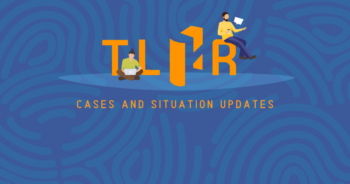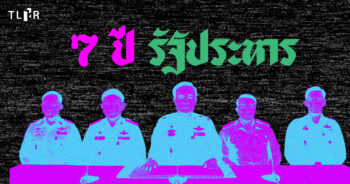Thailand became party to the Convention Against Torture and Other Cruel, Inhuman or Degrading Treatment or Punishment (UNCAT) on 2 October 2007 to comply with international standards. Since the UNCAT had become effective on 1 November 2007, the Thai Government was under the obligation to make administrative, legislative and judicial adjustments in compliance with the provisions of the Convention, including the criminalization of torture, the promulgation of domestic laws, the establishment of mechanisms to guarantee prompt, impartial and independent investigation of torture allegations, and the providence of remedies and reparations to victims of torture.
Over the past ten years, the Thai Government has displayed their protracted effort to promulgate domestic laws in compliance with international standards and criminalize the act of torture. However, after the 2014 coup, Thai Lawyers for Human Rights found that administrative, judicial and legislative measures of the Thai Government under the administration of the National Council for Peace and Order (NCPO) had obstructed the effective investigation to bring perpetrators to justice. The NCPO Announcements and Orders have made persons held in official custody vulnerable to an act of torture. The victims of torture are not guaranteed with any safeguards to ensure their access to remedies and reparations, prompt investigation of the arbitrary detention, and independent review of the official conduct to hold them accountable.
In particular, Head of the NCPO Order no. 3/2015 grants the authorities power to detain persons up to seven days without charges or having to bring them before the court, and without access to lawyer or family members. In response to the imposition of Martial Law, Head of the NCPO Order nos. 3/2015 and 13/2016, the UN Human Rights Committee, established under the International Covenant on Civil and Political Rights (ICCPR), stated in its Concluding Observation dated 25 April 2017 that the Thai Government should review and make amendments to such legislations to comply with its international obligations. However, the Thai Government has continued to exercise its power under such laws, subjecting its people to torture without any safeguards to protect their rights and libertie.
In response to a complaint filed by Thai Lawyers for Human Rights, the National Human Rights Commission of Thailand (NHRC) issued the result of their investigation dated 24 November 2015, which states that at least 14 individuals have been subject to torture by state authorities since the 2014 coup. The NHRC noted that they were unable to carry out the investigation in full capacity, due to the delayed access to witness and evidence and the limited cooperation of concerned agencies. Further, the complaint of torture allegations against Mr Kritsuda Khunasen and Mr Sansern Sri-oonroen, defendants of the Erawan Shrine Bomb case, was not investigated by an independent, impartial organization. The authorities have reportedly threatened those who impart the information to the public with legal actions.
Thai Lawyers for Human Rights deems that the Thai Government’s effort to prevent acts of torture, bring perpetrators to justice, and provide effective remedies to the victims of torture has failed to succeed in both legal framework and practices. On the occasion of the International Day in Support of Victims of Torture, Thai Lawyers for Human Rights demands the Thai Government to proceed as follows;
- The Thai Government must revoke and make amendments to existing legislations that subject persons detained in official custody to torture, excuse the review of legality, and grant impunity to perpetrators. This includes, in particular, the Marital Law Act B.E. 2457 (1914), the Emergency Decree on Government Administration in States of Emergency B.E. 2548 (2005), and Head of NCPO Orders Nos. 3/2015 and 13/2016.
- The Thai Government must promptly investigate complaints of torture allegations by an independent and impartial organization. Thailand must ensure the effective protection of witnesses and complainants who have filed a complaint of torture allegations in good faith, and take measures to redress the remedies and reparations of victims of torture.
- The Thai Government must expedite its effort to promulgate domestic laws in compliance with the Convention against Torture and Other Cruel, Inhuman or Degrading Treatment or Punishment (UNCAT). The Government must also accede to the UNCAT’s Optional Protocol (OPCAT) and ensure that a National Prevention Mechanism (NPM) is put in place, to carry out visits to places of detention and monitor the treatment of and conditions for detainees.
With respect for the rights and liberties of the people
Thai Lawyers for Human Rights (TLHR)




